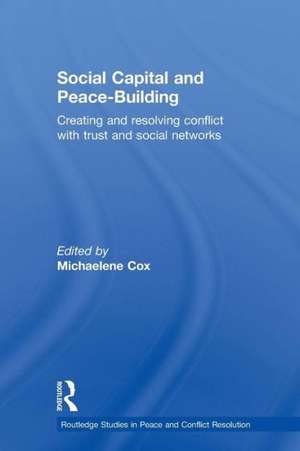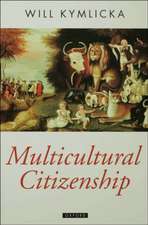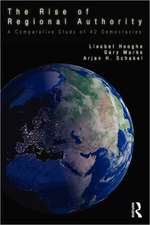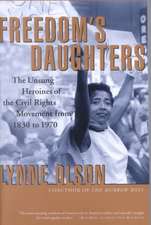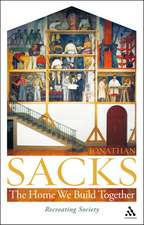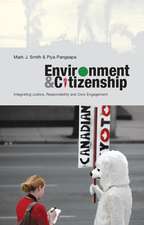Social Capital and Peace-Building: Creating and Resolving Conflict with Trust and Social Networks: Routledge Studies in Peace and Conflict Resolution
Editat de Michaelene Coxen Limba Engleză Paperback – 30 iun 2010
This is the first book to bring the two faces of social capital together in a single volume, and includes previously unpublished case studies, statistical analyses, and theoretical essays. The book is divided into three sections. The first investigates the role of social capital in inciting and/or furthering violence; the second examines the contributions of social capital to peace building; the third explores the complexities and ambiguities of roles social capital may play in peace and conflict. Policy implications and recommendations are included in many of the discussions in the chapters.
The volume tackles some key issues, such as: to what extent is social capital related to peace and conflict? What forms does social capital take in these associations, and how can the relationships be explained? What impact does this have on the state and/or state relations, and what policy prescriptions might be made in light of the link drawn between social capital and peace/conflict?
.
| Toate formatele și edițiile | Preț | Express |
|---|---|---|
| Paperback (1) | 343.82 lei 6-8 săpt. | |
| Taylor & Francis – 30 iun 2010 | 343.82 lei 6-8 săpt. | |
| Hardback (1) | 732.06 lei 6-8 săpt. | |
| Taylor & Francis – 7 noi 2008 | 732.06 lei 6-8 săpt. |
Din seria Routledge Studies in Peace and Conflict Resolution
-
 Preț: 314.01 lei
Preț: 314.01 lei -
 Preț: 296.65 lei
Preț: 296.65 lei -
 Preț: 137.59 lei
Preț: 137.59 lei -
 Preț: 301.63 lei
Preț: 301.63 lei -
 Preț: 324.91 lei
Preț: 324.91 lei -
 Preț: 231.06 lei
Preț: 231.06 lei -
 Preț: 466.45 lei
Preț: 466.45 lei - 25%
 Preț: 323.04 lei
Preț: 323.04 lei - 18%
 Preț: 1053.92 lei
Preț: 1053.92 lei -
 Preț: 385.54 lei
Preț: 385.54 lei - 18%
 Preț: 1117.43 lei
Preț: 1117.43 lei - 28%
 Preț: 821.82 lei
Preț: 821.82 lei - 18%
 Preț: 1165.73 lei
Preț: 1165.73 lei - 16%
 Preț: 337.39 lei
Preț: 337.39 lei - 18%
 Preț: 1168.37 lei
Preț: 1168.37 lei - 18%
 Preț: 1114.08 lei
Preț: 1114.08 lei - 18%
 Preț: 705.53 lei
Preț: 705.53 lei - 28%
 Preț: 822.34 lei
Preț: 822.34 lei - 18%
 Preț: 1049.36 lei
Preț: 1049.36 lei - 18%
 Preț: 1054.71 lei
Preț: 1054.71 lei - 18%
 Preț: 999.98 lei
Preț: 999.98 lei -
 Preț: 390.37 lei
Preț: 390.37 lei - 25%
 Preț: 853.43 lei
Preț: 853.43 lei - 30%
 Preț: 847.86 lei
Preț: 847.86 lei -
 Preț: 411.42 lei
Preț: 411.42 lei -
 Preț: 412.37 lei
Preț: 412.37 lei - 49%
 Preț: 543.52 lei
Preț: 543.52 lei - 17%
 Preț: 296.21 lei
Preț: 296.21 lei - 16%
 Preț: 299.52 lei
Preț: 299.52 lei - 28%
 Preț: 824.70 lei
Preț: 824.70 lei -
 Preț: 485.84 lei
Preț: 485.84 lei - 13%
 Preț: 295.49 lei
Preț: 295.49 lei - 18%
 Preț: 1166.80 lei
Preț: 1166.80 lei -
 Preț: 406.05 lei
Preț: 406.05 lei - 18%
 Preț: 1111.51 lei
Preț: 1111.51 lei - 18%
 Preț: 1164.44 lei
Preț: 1164.44 lei - 18%
 Preț: 1060.87 lei
Preț: 1060.87 lei -
 Preț: 381.00 lei
Preț: 381.00 lei - 28%
 Preț: 822.01 lei
Preț: 822.01 lei - 28%
 Preț: 848.22 lei
Preț: 848.22 lei
Preț: 343.82 lei
Nou
Puncte Express: 516
Preț estimativ în valută:
65.80€ • 71.45$ • 55.27£
65.80€ • 71.45$ • 55.27£
Carte tipărită la comandă
Livrare economică 23 aprilie-07 mai
Preluare comenzi: 021 569.72.76
Specificații
ISBN-13: 9780415595766
ISBN-10: 0415595762
Pagini: 214
Dimensiuni: 156 x 234 x 12 mm
Greutate: 0.32 kg
Ediția:1
Editura: Taylor & Francis
Colecția Routledge
Seria Routledge Studies in Peace and Conflict Resolution
Locul publicării:Oxford, United Kingdom
ISBN-10: 0415595762
Pagini: 214
Dimensiuni: 156 x 234 x 12 mm
Greutate: 0.32 kg
Ediția:1
Editura: Taylor & Francis
Colecția Routledge
Seria Routledge Studies in Peace and Conflict Resolution
Locul publicării:Oxford, United Kingdom
Public țintă
Postgraduate, Professional, and UndergraduateCuprins
Introduction Michaelene Cox Part I. Social Capital as an Instrument of Violence 1. Shades of orange and green: Civil society and the peace process in Northern Ireland Roberto Belloni 2. Reporting the greater odds: Dissent and militancy among trusting East-Central European citizens Michaelene Cox 3. Social capital, crime and welfare: the cases of Colombia and Honduras José Cuesta 4. Analyzing the dark side of social capital: Organized crime in Russia Leah Gilbert 5. Illicit interest groups, social capital, and conflict: A study of the FARC Patricia Micolta Part II. Social Capital as a Catalyst for Peace 6. The color of tears is the same everywhere: Inter-ethnic networking and grassroots organizing among women workers in conflict-ridden Sri Lanka Sandya Hewamanne 7. Gender, conflict, and social capital: Bonding and bridging in war in the Former Yugoslavia Maja Korac 8. Decentralization and social capital formation in communities of Mali Keith Moore 9. Cyprus conflict and social capital theory: a new perspective on an old conflict Raymond Saner Part III. Ambiguities of Social Capital in Peace and Conflict 10. The pacific promise of civic institutions? Causal ambiguity in the study of social capital Terrence Chapman 11. Social capital in exclusive and inclusive networks: Satisfying human needs through conflict and conflict resolution Susan Allen Nan 12. Exploring opportunities and obstacles for a constructive role of social capital in peacebuilding: A framework for analysis Thania Paffenholz
Notă biografică
Michaelene Cox is Assistant Professor in the Department of Politics and Government at Illinois State University where she also serves as director of the Peace and Conflict Resolution Studies program.
Descriere
This new edited collection illustrates the paradoxical power of social capital in creating and resolving conflict. It is the first book to bring the two faces of social capital together in a single volume, and includes previously unpublished case studies, statistical analyses, and theoretical essays.
